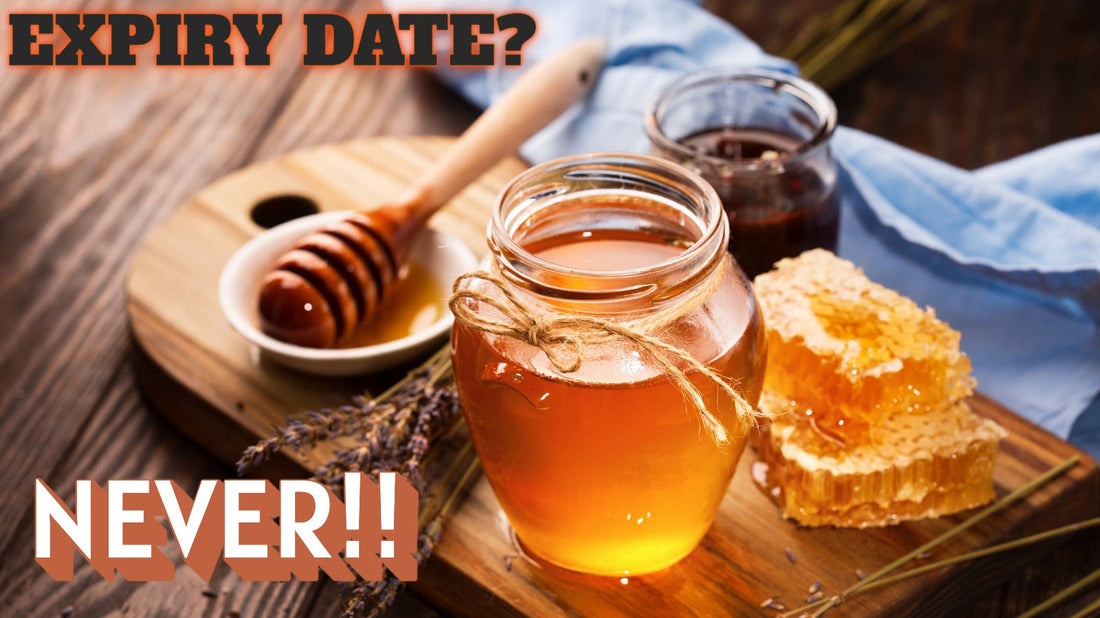
为什么麦卢卡蜂蜜不会变质:其超长保质期的科学原理
蜂蜜是大自然最甜蜜的馈赠之一,也是最耐储存的食品之一。大多数食物最终都会变质或失去新鲜度,而蜂蜜却拥有令人难以置信的保鲜能力,可以保存数年之久。随着时间的推移,你可能会注意到蜂蜜会结晶或变稠,但它几乎不会变质。那么,是什么让蜂蜜成为如此经久耐用的厨房必备品呢?新西兰麦卢卡蜂蜜又为何如此特别呢?
让我们仔细看看是什么赋予了蜂蜜——尤其是麦卢卡蜂蜜——如此传奇般的持久保质期。
天然完美防腐剂
食物腐败通常是由于细菌、真菌或酵母分解了其中的糖分和蛋白质。这些微生物在潮湿、pH值适宜、温度和氧气充足的环境中繁殖旺盛。这就是为什么我们要冷藏、烘干、腌制或密封保存食物的原因。
但蜂蜜却截然不同。它天然含水量低,富含糖分——这些特性使得细菌极难生存。蜜蜂采集花蜜,并在蜂巢中进行加工,最终酿成蜂蜜。它们利用酶分解花蜜,用翅膀扇动花蜜以降低水分,并提高其酸度。最终得到的蜂蜜是一种浓稠的金黄色糖浆,含水量仅为15%至18%——远低于大多数微生物的生长所需。
科学家称这种特性为低“水分活度”,这也是蜂蜜不易变质的关键原因之一。蜂蜜的高糖分和天然酸性,共同营造出不利于细菌和霉菌生长的环境。
是什么让麦卢卡蜂蜜更加特别?
所有蜂蜜都具有一定程度的抗菌作用,但产自新西兰本土麦卢卡树( Leptospermum scoparium )的麦卢卡蜂蜜,其抗菌效果更胜一筹。
麦卢卡蜂蜜的独特之处在于其高浓度的甲基乙二醛(MGO) ,这是一种天然化合物,赋予其独特的抗菌特性。普通蜂蜜依靠过氧化氢发挥抗菌作用(过氧化氢可被热或光破坏),而麦卢卡蜂蜜的非过氧化物抗菌活性则能长期保持稳定有效。
这使得新西兰麦卢卡蜂蜜不仅是一种美味的天然甜味剂,也是护肤、伤口护理和日常保健领域备受追捧的产品。如果储存得当——密封在罐中,避免阳光直射——它可以保存数年,并保持其强大的功效。
结晶是自然现象,并非变质的迹象
如果你的蜂蜜变得浑浊或有颗粒感,别担心!这只是结晶现象,是葡萄糖与水分离的自然过程。这并不意味着蜂蜜变质了。你可以将蜂蜜罐轻轻放入一碗温水中加热,使其恢复顺滑的质地。
一款无需冷藏的美味甜点
蜂蜜开封后容易吸收空气中的水分,如果用脏勺子取用,也可能沾染微生物。但只要使用干净的器具,并将其存放在阴凉干燥处,您的麦卢卡蜂蜜就能保持美味,可以放心享用。
要点总结
麦卢卡蜂蜜水分含量低、酸度高,并具有卓越的抗菌功效,堪称天然奇珍。无论您是用来调味茶饮、呵护肌肤,还是馈赠亲友,新西兰麦卢卡蜂蜜都能将美味、功效和持久保质期完美融合于一身。
准备囤货了吗?请访问mnhnz.co.nz浏览我们的麦卢卡蜂蜜系列。 亲身体验其中的不同。
